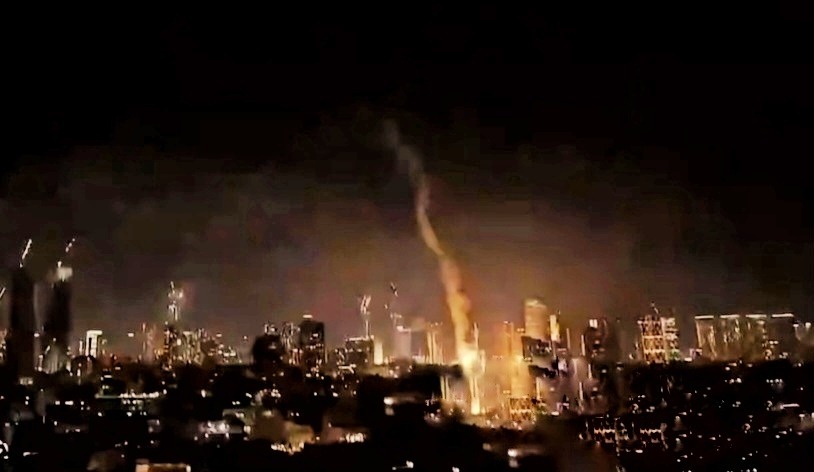Iran on Friday retaliated against Israel with an unprecedented missile barrage against the country. Israeli emergency services reported at least 17 people were injured in the strikes.
Israel’s defense systems were actively intercepting the threat, and authorities have issued an urgent directive: all civilians must enter a protected space immediately and remain there until further notice.
The Israel Defense Force has urged those in Israel to not leave shelter unless explicitly instructed by official sources, report agencies.
The wail of air raid sirens and the rumble of explosions could be heard throughout Israel on Friday, and journalists documented explosions as Iranian rockets hit Tel Aviv, the commercial hub of Israel. Paramedics said five people were wounded.
Hours earlier, Israel launched a wave of strikes across Iran that targeted its nuclear program and military sites, killing at least three top military officers and raising the prospect of an all-out war between the two bitter Middle East adversaries. It appeared to be the most significant attack Iran has faced since its 1980s war with Iraq.
The strikes came amid simmering tensions over Iran’s rapidly advancing nuclear program. For years, Israel had threatened such a strike and successive American administrations had sought to prevent it, fearing it would ignite a wider conflict across the Middle East and possibly be ineffective at destroying Iran’s dispersed and hardened nuclear program.
The US military is helping intercept missiles that Iran fired in retaliation at Israel, a US official says.
The US has been moving assets nearer to Israel to assist in missile intercepts and to provide better protection of US bases in the region.
While the official did not say how the US provided assistance, both US Air Force fighter aircraft and destroyer-based missile defenses have intercepted missiles in previous attacks.
The official spoke on condition of anonymity to discuss ongoing operations.
Israel’s ongoing airstrikes and intelligence operation and Iran’s retaliation raised fears of all-out war between the countries and propelled the region, already on edge, into even greater upheaval.
Israel had long threatened such a strike, and successive American administrations had sought to prevent it, fearing it would ignite a wider conflict across the Middle East and possibly be ineffective at destroying Iran’s dispersed and hardened nuclear program.
Israel had told the Trump administration that the large-scale attacks were coming, officials in the US and Israel said on condition of anonymity to describe private diplomatic discussions.
On Wednesday, the US pulled some American diplomats from Iraq’s capital and offered voluntary evacuations for the families of US troops in the wider Middle East. On Friday, the US began shifting military resources in the region, including ships, as Israel prepared for more retaliation, two US officials said.
Countries in the region condemned Israel’s attack, while leaders around the globe called for immediate deescalation from both sides. The UN Security Council scheduled an emergency meeting for Friday afternoon at Iran’s request.
In a letter to the council, Iran’s Foreign Minister Abbas Araghchi called the killing of its officials and scientists “state terrorism” and affirmed his country’s right to self-defense. “Israel will come to deeply regret this reckless aggression and the grave strategic miscalculation it has made,” he said.


